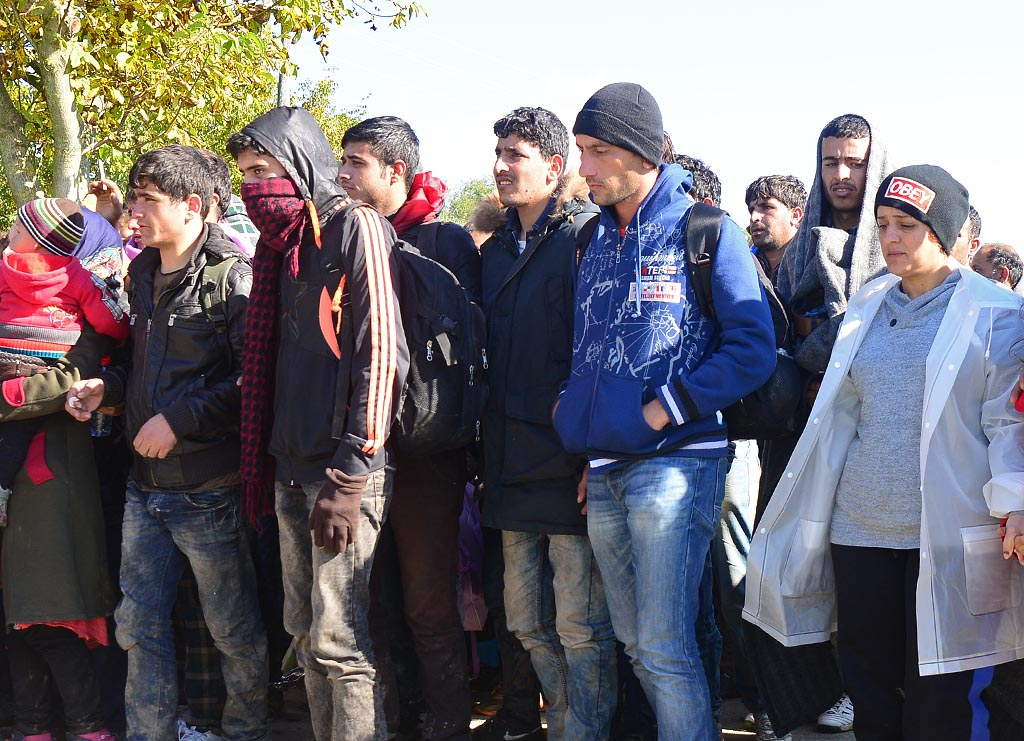By: V4 Agency
The EU country allocates growing sums of money to supporting mass migration, despite the fact that migrants are committing an increasing number of crimes which are almost impossible to prosecute.
The Swedish Democratic Party has published a report on the costs of immigration, based on a number of ackowledged studies on the subject. The report reveals that even the most modest estimates suggest that Swedish taxpayers are being forced to spend more than 2 per cent of GDP every year to finance mass immigration into the country.
The report “Immigration and public finances 15 years on” is based mainly on three studies, all of which have examined the evolution of migrants’ labour market and social situation and the length of time they have been dependent on state support.
The studies have been weighted and updated to keep them current. Addendums were also included, in particular regarding the cost factor for year zero, the year of arrival, which is absent from several studies. The result is that the total so-called net budgetary cost of immigration and related family reunification over the period 2007-2021 was 1 712 billion Swedish krona (over 161 billion eur), or an average of SEK 114 billion per year, equivalent to 2.38 per cent of GDP.
The Social Democratic government claimed to have reduced immigration to Sweden to the EU minimum level after the collapse of the 2015 refugee crisis situation. However, statistics from the Swedish Migration Board show that since 2015, the authorities have issued nearly 100,000 residence permits per year, and 2022 could be the year when Sweden will receive more migrants than ever before.
The report is strictly economic in scope and does not take into account the significant intangible costs of migrant influx. These include the deteriorating security situation, physical and psychological problems associated with immigration-related violence and crimes against property.
As V4NA reported earlier, gang-related crime in Sweden is increasing year on year. And thanks to mass and uncontrolled immigration, the authorities are losing control of more and more areas where migrant gangs are taking over.
“For many immigrants, it is not enough to come to Sweden from a less developed country and enjoy the benefits that come with it. They want excitement and to get rich quick,” criminologist Amir Rostamis says.
Mr Rostamis sees himself as an example that those who want to can choose a different life. Born in Iran, he came to Sweden as an immigrant with his family and grew up in the immigrant-dominated and “vulnerable area” of Frolunda, where he still resides. According to him, his upbringing was full of the risks of becoming a criminal, but instead of taking the path of crime, he chose to study.
Regarding migrant gangs, the criminologist stressed that the “business” is passed on within the family. “Fathers and other relatives teach sons to commit crimes. It is an almost insurmountable task for society to steer these individuals toward a decent life and requires far more resources than are available or can reasonably be allocated for the task,” Mr Rostamis pointed out.
Police estimate that the number of people actively living from gang crime in the so-called exposed areas exceeds 5,000, with almost a thousand of them living in Gothenburg. According to the authorities, almost all of the registered criminals are of immigrant background.
The calculations show that over roughly 15 years, each immigrant criminal costs taxpayers an average of SEK 25 million (over 2.35 billion euros), which adds up to a total financial burden of SEK 125 billion for society. On top of that, there is a loss to society in the form of taxes that these people would have contributed if they had chosen a decent life instead of crime.
The convicted gang leaders are all first or second generation migrants. Twelve of them are currently serving their prison sentences and one is at large and in hiding.
A common feature of the leading individuals, apart from their immigrant background, is that most of them have been habitual criminals from a young age, are repeat offenders and have been handed light sentences. However, once out of prison, they continued to commit crimes. In many cases they belong to families and clans where people have been living off crime for generations.
However, these gang members are often supported by the Swedish state, despite the fact that migrants often return to their country of origin to escape prosecution for their crimes. This is what happened to a Future Artist Award-winning rapper, who is facing trial for illegal possession of weapons, use of weapons and robbery, but cannot be convicted as he is currently in Somalia by his own admission.
Swedish police, together with Interpol, are also looking for a Syrian migrant suspected of murder at a campsite in Katrineholm, but the man is believed to have returned to his home country.
The incident happened in early July at a campsite in Djulo, where a man was beaten to death. Shortly afterwards, a 21-year-old Syrian migrant was arrested and detained on suspicion of complicity in murder, along with another person. Police and Interpol are now hunting for another suspect in connection with the murder, Adel Al Ajeil, 23, from Raqqa, Syria. Prosecutor General Robert Eriksson said that the authorities had received information that Al Ajeil had left Sweden and was on his way to Syria.
During his time in Sweden, Al Ajeil was convicted of a number of crimes, including attempted extortion, theft and drug-related offences.

